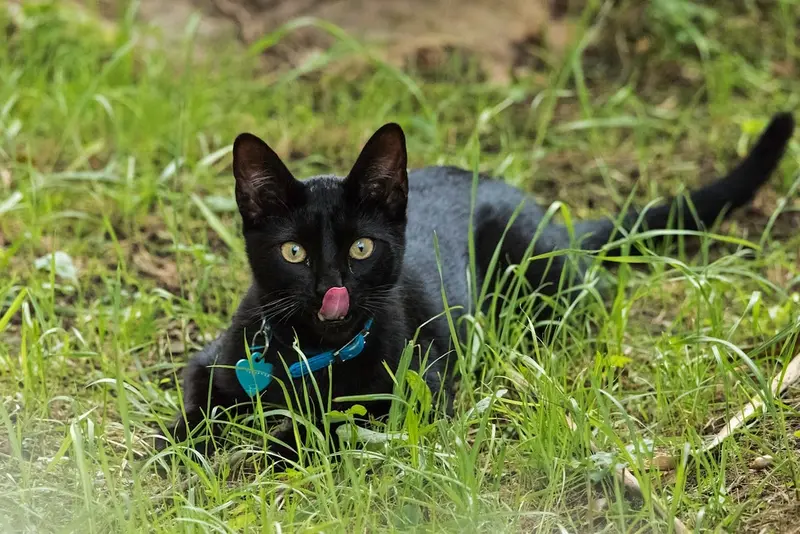Anyone who has a cat or a at home has likely noticed their furry friend munching on grass. This behavior might seem unusual, especially for cats, who are natural predators. So, why do our pets eat grass? Is there something they’re lacking?
Debunking Myths
“There are quite a few theories about this. We observe herbivorous behavior in both dogs and , which are technically not equipped to digest large amounts of grass,” noted Dr. Jamie Lovejoy from Stack Veterinary Hospital in Syracuse, New York. Meanwhile, herbivores typically have specialized gut bacteria that help break down the tough cellulose in grass. Many herbivores also possess a multi-chambered stomach and a longer digestive tract for processing plant-based food.
A Remedy for Stomach Upset
People often believe that pets eat grass to treat stomach upset. However, Dr. Lovejoy dismissed this common assumption, calling it a “grandma’s tale.” In an interview with Live Science, she explained that only a small percentage of animals do this due to illness.
In 2008, researchers surveyed 1,571 owners about their pets’ grass-eating habits. Sixty-eight percent of respondents reported that their dogs eat plants daily or weekly. However, only 8 percent said their dogs showed signs of illness before eating grass.
Two studies on this topic in 2021 involving cat owners yielded similar results (as reported in the journal Animals). Only 6 percent of cats in the first survey and 9 percent in the second appeared sick before eating grass. However, 27 and 37 percent (respectively) often vomited afterward.
A Solution for Hairballs
During one of the aforementioned studies, scientists explored the idea that cats eat grass to eliminate hairballs. Previously, veterinarians suggested that long-haired cats regurgitate these hairballs more frequently than short-haired ones. However, researchers found no significant differences in grass-eating frequency between the two groups.

A Method for Parasite Removal
Scientists have repeatedly hypothesized that wild cats and wolves eat grass to cleanse their intestines of parasites. Therefore, it’s possible that domestic pets do the same.
“I think this theory is hard to test, at least in the United States, because most of our pets don’t actually have such a high level of worm infestation. So it’s difficult to say for sure,” Dr. Lovejoy remarked.
Grass as a Source of Vitamins
Despite grass lacking obvious nutritional value, some scientists have suggested that dogs and cats might consume it to obtain essential micronutrients, such as B vitamins. However, according to Lori Teller, a professor of veterinary medicine at Texas A&M University, this doesn’t apply to most pets with their balanced diets.
“If you have a healthy pet that receives a balanced diet and occasionally eats grass, catnip, or something similar, there’s really nothing to worry about,” Professor Teller believes. But if your pet is greedily consuming these plants and then becomes nauseous, it’s time to look for an underlying issue, she added.
The Answer is Simpler Than We Expected
Dr. Lovejoy’s explanation is quite simple: our pets eat grass because they want to; they might just enjoy the taste.
“There are probably as many reasons as there are types of grass. Some dogs and cats simply like it,” Professor Teller echoed her colleague.
While eating grass is generally harmless, pet owners should remember that some plants can be toxic. Plants treated with chemicals, such as pesticides and fertilizers, can be particularly dangerous for dogs and cats. Therefore, if your furry friend is frequently vomiting or experiencing other health issues, it’s important to consult a veterinarian.
Photo: pexels.com
